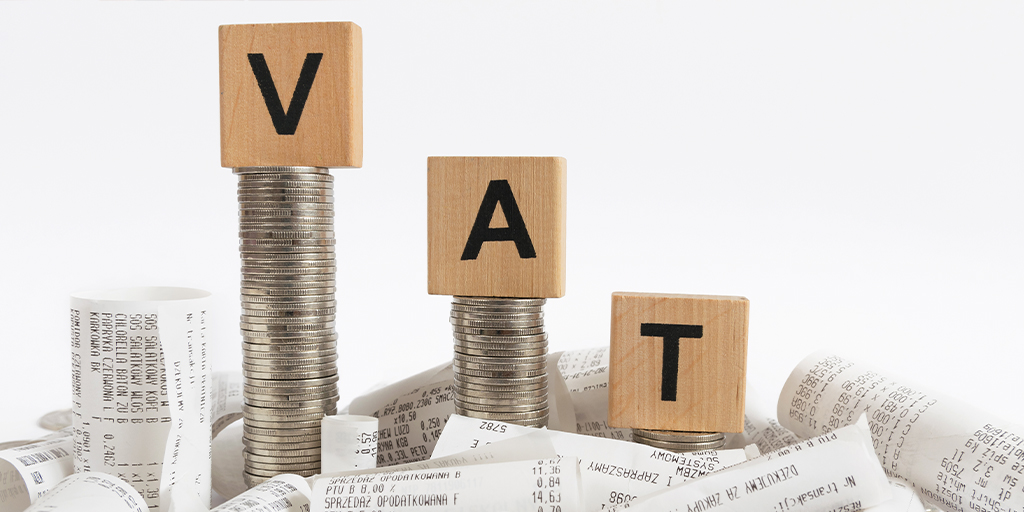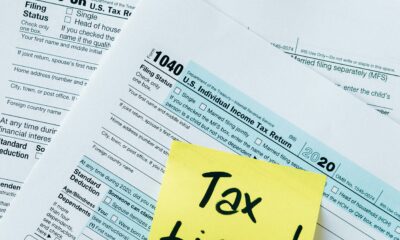Business
Could South Africa Really Cut VAT to 6%? Inside the Bold Proposal Challenging the Status Quo

Could South Africa Really Cut VAT to 6%?
Inside the Bold Proposal Shaking Up Tax Conversations
South Africans are used to tax debates popping up every few years, but it’s not often you hear whispers of the VAT rate dropping from 15% all the way to 6%. That’s the headline-grabbing possibility emerging from a bold proposal by PKF, a mid-tier accounting and advisory firm and it’s sparking curiosity, scepticism, and lively debate across the country.
At the centre of the discussion is a sweeping rethink of how VAT works, who it benefits, and how much fraud it unintentionally enables.
A Radical Idea in a Country Tired of Red Tape
PKF’s suggestion is surprisingly straightforward:
Scrap VAT input claims altogether and move to a simple, sales-tax-like structure where businesses only pay output VAT.
According to PKF tax partner Paul Gering, doing so could slash the VAT rate from 15% to as low as 6%, without reducing government revenue. With input claims gone, companies would fold those costs into their cost of sales, while consumers would enjoy cheaper products and services.
Even more significant, SARS would be freed from the massive administrative burden of auditing input claims and chasing fraudulent refund schemes that cost the fiscus billions every year.
“This would eliminate the audit and verification work on VAT inputs and VAT refunds,” Gering argues – and with it, one of the tax system’s biggest loopholes.
VAT Refund Fraud: A Quiet Monster in the Room
While VAT is one of the state’s most reliable revenue streams, it is also one of its biggest headaches.
During the 2024/25 fiscal year alone:
-
SARS paid out R447.7 billion in refunds
-
And prevented R146.7 billion in impermissible claims
Fraudulent “pop-up companies” , created solely to score hefty refunds before vanishing remain a major concern. PKF believes its proposal tackles this problem head-on by removing the incentive entirely.
But Treasury Isn’t Sold, Yet
National Treasury’s official response was diplomatic: it has “noted” the proposal. In tax-speak, that’s neither a yes nor a no. It’s the bureaucratic equivalent of “We hear you… let’s talk later.”
Treasury’s hesitation is rooted in history. South Africa moved from a sales tax to the current VAT model precisely because VAT is considered more stable, more modern, and aligned with global best practice. Reversing course, even partially, would be a massive ideological shift.
Treasury also emphasised that its ongoing VAT Modernisation Project is already aimed at tightening the system, not redesigning it entirely.
The VAT Modernisation Project: SA Tries to Go Digital
First flagged in 2023, the VAT Modernisation Project aims to pull South Africa into the world of real-time VAT reporting, similar to systems being rolled out in Europe.
The 2025 draft Taxation Laws Amendment Bill introduces:
-
E-invoices
-
E-credit notes
-
E-debit notes
-
E-reporting
-
An interoperability framework for shared data
It is a dramatic shift away from the paper-heavy, error-prone system currently in place. But critics worry it may be an expensive leap of faith.
A Very Costly Upgrade
The projected price tag?
R1.5 billion over five years and even SARS insiders admit major IT projects often run over budget.
PKF’s Gering also points out that France has postponed its system three times, and the UK only expects full rollout in 2030.
His question:
Why is South Africa rushing to implement something the world’s most advanced economies are struggling with?
How the Public Is Reacting
On social media, reactions range from amused disbelief to cautious optimism:
-
“VAT at 6%? I’ll believe it when Pick n Pay stops printing paper slips the length of a CVS receipt.”
-
“Anything that reduces fraud is good. Taxpayers can’t keep footing the bill for crooks.”
-
“Treasury will never let go of input VAT. It’s their favourite auditing sport.”
Increasingly, South Africans are calling for simpler systems, fewer loopholes, and fewer compliance nightmares for small businesses.
Small Businesses: The Real Stakeholders
One of the biggest concerns around the modernisation project is its potential impact on SMEs.
PKF warns that:
-
Many small businesses lack the digital tools or bandwidth to comply
-
Stakeholder engagement has been limited
-
A fast rollout could expand the cash economy rather than shrink it
-
Overregulation may worsen the existing tax gap
For small traders already juggling load shedding, shrinking margins, and municipal chaos, another layer of admin could be devastating.
What Happens Next?
Treasury has promised:
-
A consultation paper before the end of the financial year
-
More collaborative engagement in 2025
-
A phased rollout of voluntary e-reporting
PKF’s proposal isn’t deadjust temporarily parked. And even Treasury admits the system must be shaped around South Africa’s unique circumstances, not simply copied from Europe.
A Fresh Angle: The Case for a Hybrid Solution?
With one camp pushing for digital modernisation and another calling for a return to simplicity, the real opportunity may be a hybrid model:
-
Keep VAT as a concept
-
Make e-reporting voluntary or phased
-
Use PKF’s model in high-risk sectors
-
Reduce input claims rather than abolish them
The conversation is far from over, but for the first time in years, South Africans are seeing a tax reform idea that promises something rare:
Lower taxes and less admin, without shrinking the fiscus.
Whether that becomes reality is up to Treasury. But for now, the proposal has injected fresh energy into a debate that affects every household, every business, and every sector of the economy.
{Source: Moneyweb}
Follow Joburg ETC on Facebook, Twitter , TikTok and Instagram
For more News in Johannesburg, visit joburgetc.com



























